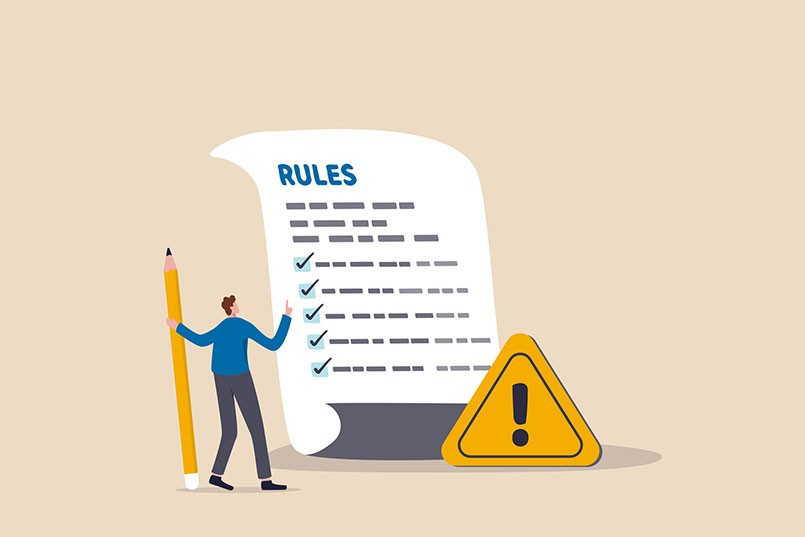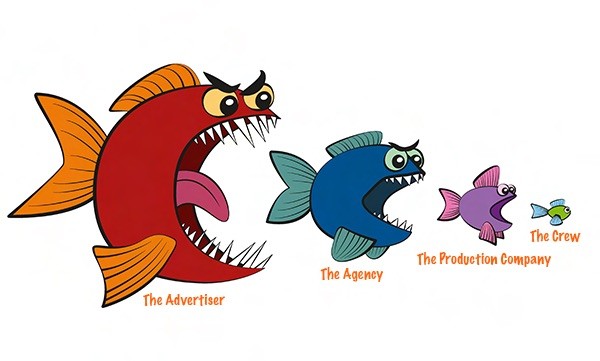The international scandal from New Zealand concerning the court case between the publisher of Eminem’s song Lose Yourself and the National Party of New Zealand reminds us why advertisers should be very careful when it comes to copyright, music rights and intellectual property.
During my career as a copywriter I witnessed on so many occasions situations that could easily have ended up in the same embarrassing court battle that the National Party of New Zealand is currently facing.
This is because many people in the industry and advertisers themselves believe that if they can’t afford the original music track then it is okay to commission a sound-alike track for often a fraction of the cost of the rights. But it isn’t. And if caught it will end up costing you significantly more.
How does this happen
While not wanting to speculate on the trial happening in New Zealand, let me recount the steps of a very similar situation that occurred at an agency I worked at last century.
The agency had presented a campaign concept to the Government and to drive the action had used a well-known anthemed music track by an international band, knowing that the cost of licencing the track would be too expensive.
Being the Government the agency knew they would research the concepts and of course the agency concept won largely because of the popularity and power of the music track. The agency was appointed to the business and following rounds of rewrites of the concept to meet the Government requirements, the one thing that did not change was the music track on the original concept. That is until the final budget was presented.
Up until this point any agency proposed costs had a small disclaimer on all of the documentation that said *subject to final concept approval. So when the final concept was approved the agency producer approached the publisher and the artist to obtain the publishing and master or performance rights, to find out that together the cost was $12 million per year.
This was the budget for the whole campaign including media and did not include shooting the commercial, which was another $2 million. So what was the client to do? They could fire the agency and start again or just start again, but either would have massive recriminations internally for all involved.
Then the agency producer said “We could always create a sound-alike”.
Sound-alikes sound a lot like trouble
The concept is that if you cannot afford the original then get a composer to create a track that sounds like it. Or find a piece of library music that sounds like it. The trouble is that the more it sounds like the original then the more likely you are to be in breach of copyright, publishing rights and master or performance rights.
The way these cases are decided, either before judge or jury, is the two tracks are played and if they believe it is the same track then you have breached their right. And as Sara Delpopolo, the Principal at Axis Legal says, if anyone starts saying that it is less than 10% or that one note in each bar is changed, don’t believe them.
The test is not numerical or professionally musical, it is if the average person would believe that one has copied the other. Then there is a breach.
In the New Zealand case here is Eminem – Lose Yourself (Explicit):
And here is the National Party 2014 Election Ad:
Lets leave it to the courts to decide this case. But when the track you used is titled “Eminem-esque” your case is not looking good.
What should an advertiser do
While many advertisers will say that it is the agency’s responsibility and in fact the contract may place the onus on the agency to ensure there is no breach, when it comes to litigation the publishing houses and the artists will come after the client knowing they have deeper pockets and more to lose through litigation.
This leaves the advertiser in a situation where they may need to try and counter sue the agency and perhaps the composer of library music supplier as well. But it is simply better to avoid this situation altogether by making sure that you never use sound-alike tracks. If you cannot afford the original then go for another idea.
In the case of the agency I was working at, cooler heads prevailed and quite a different anthem-like track was composed for the ad. The client was significantly disappointed but recovered slightly when the compulsory concept testing came back positive.
Not as positive as the original track, but nonetheless positive enough. Explaining it to the Minister apparently was more difficult as he was a big fan of the original artist but the $12 million price tag soon cooled his passion for having the original track on the commercial. Imagine explaining the annual cost for music in Senate Estimate hearings each year the ad ran?
Of course you could also consider engaging TrinityP3 to oversee and manage your broadcast productions. Rather then simply looking for ways to reduce cost like most production consultants, we also ensure that the concept and execution will not have you ending up in court for either copyright breach or possibly misleading and deceptive conduct. But of course that is entirely up to you.
I wonder if the National Party of New Zealand will be calling us next time they make a television ad?
TrinityP3’s Production Management Assessment provides a detailed evaluation of your current production operation, and recommendations to achieve optimal performance.
Why do you need this service? Learn more here




